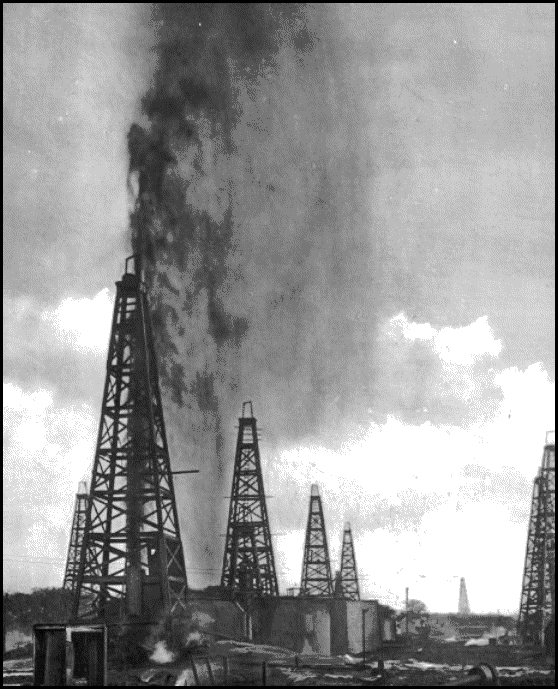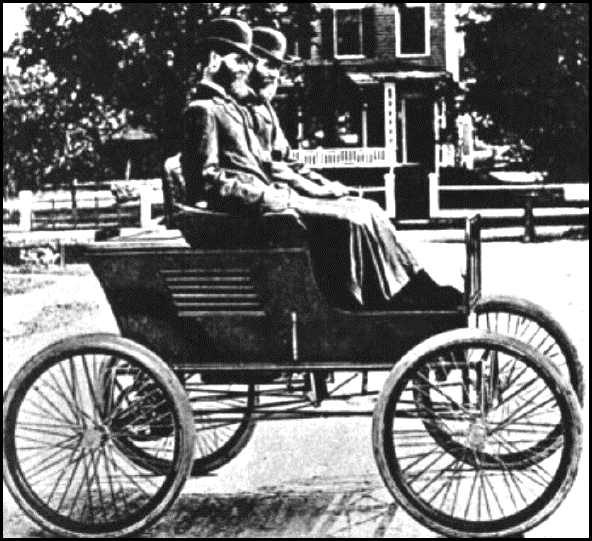Gavin Bridge
Philippe Le Billon
(Polity)

- We all thought the Falkland War of 1982 was a little reminder of the good old days of colonialism. Turns out there was something else involved --- like a proven reserve of 60,000,000,000 barrels of oil along the coasts of what the Argentines call Las Malvinas.
- According to the World Health Organization, traffic accidents are now "the world's leading cause of death among youth between five and twenty-nine years of age."
- You and I may think we are driving a car, but, according to the authors, we are really engaged in "transforming fossil stocks of carbon into atmospheric carbon dioxide."
- One of the attractions of oil from the Middle East is its purity; a second is its cost. "Light sweet crude" is the least expensive to produce and process. (The most expensive form of energy: biodiesel).
- Post-Soviet Russia has turned out to be one of the world's major consumers of oil: "it ranks fifth in the world in terms of its annual consumption." But it is, too, a leading exporter, because "it produces around three times as much oil as it consumes."
- Exxon Corporation's revenue for 2012 was somewhat less than half-a-trillion dollars (US$ 453,123,000,000, to be exact). Profits? The biggest of any corporation in any country at any time in the history of mankind --- US$ 44,880,000,000. That's almost forty-five billion smackers.
- Since 2005, Venezuela "has provided heating oil to poor communities in the U.S., calling it a 'humanitarian gift' after U. S. Congress cut similar subsidies and U. S. oil companies refused to help the 'energy poor.'"
- Osama bin Laden denounced the U.S. - Saudi agreement on low oil prices during the 1990s as "the greatest theft in history," estimating an annual loss of US $1,200 for every Muslim in oil-exporting Islamic countries.
- An alliance of automobile and oil companies conspired to replace electrically driven public transportation in American cities --- the street car and electric train --- with diesel buses. Between 1936 and 1950, for example, the electrically driven tramcar lines in over 45 major American cities were purchased by bus companies like National City Lines and its subsidiary Pacific City Lines --- formed in the early 1930s and funded by General Motors, Standard Oil of California, Phillips Petroleum, and Firestone Tire --- only to be shut down leaving oil-powered transportation in their place.
Since I am a street-car nut, I was ready to go out and picket these idiots for their desecration but, apparently, I'm nearly a century too late.
All the facts are here, the biggies and the little ones. We can curse the "Seven Sisters," but, according to Bridge and Le Billon, they may be supernally rich, but they no longer determine the price we pay at the gas station. That rôle was taken over by the Organization of Petroleum Exporting Countries in 1974. By controlling the price of "Arabian Light," OPEC was the final arbiter of how much you and I would pay at the pump.
Gradually, that power has slipped even from OPEC. Its ham-fisted intervention caused the consumer states to go out to seek other options: their own wells, their own alternative fuels, their own sources of crude.
More recently, something else has intervened. It's called the spot market, that place where they sell spots, little ones, fat ones, dirty ones, greasy ones, stinky ones. Oops ... I mean the futures market. The authors report that there are now hundreds of "paper" markets for oil. Initially, the spot market was a way for the majors to hedge against price swings in the physical oil trade, but paper markets for oil have become progressively disconnected from the physical one.
The first oil futures contract --- for heating oil --- was offered on the New York Mercantile Exchange (NYMEX) in 1978, followed by the introduction of a futures contract for West Texas Intermediate in 1983. An extensive market in oil futures, options, and sundry other oil-related derivatives has since emerged, centered on the NYMEX and InterContinental Exchange (ICE) in London.
The spot market --- trades for immediate delivery --- is a comparatively small (and declining) proportion of trade in oil. More it is a matter of futures --- long-term (one- or two-year) contracts.
The worst chapter in this book --- worst meaning that it got me worked up into a snit, after the trolley-car scandal, I mean --- was the one entitled "Developing through Oil." Bridge and Le Billon reveal the real price of oil --- that is, what it costs us besides what we pay at the pump: the deaths, the accidents, the pollution, the upheavals, the tragedy where a nation's people find that they do not own this treasure under the ground, that it is either owned by governments or has been sold off to outside entities, entities who care little about the citizens' poverty, hunger, miserable lifestyle, and the physical ruination in and around the production facilities.
"Oil's high energy density, relative abundance, and easy portability have made it a powerful enabler of economic development," the authors suggest. But tell that to the shoe maker in Angola, the cattle herder in the Sudan, the dirt farmer in Nigeria, the salmon fisher in Alaska. The development of an oil economy may impoverish the citizens all the more: "Although oil revenues increased from the 1980s to the 1990s, the percentage of Nigerians living on less than a dollar a day increased from less than a third to 70 percent over the same time period."
As we read through this litany, we are, too, reminded that it doesn't have to be this way. Norway, for one, is hellbent on caring for its own people during and after the depletion of their resources. "Norway directs its oil revenues to a national pension fund, while maintaining heavy taxes and generous public services."
Norway now stands as a model for escaping the "oil curse."
There is a way out, but we must mourn the fact that it had to come about in the first place. The authors remind us that petroleum was just one of the options at the beginning of the age of the automobile. "In 1900," they tell us, "38% of U. S. vehicles ran on electricity, 40% on steam, and 22% on gasoline."
